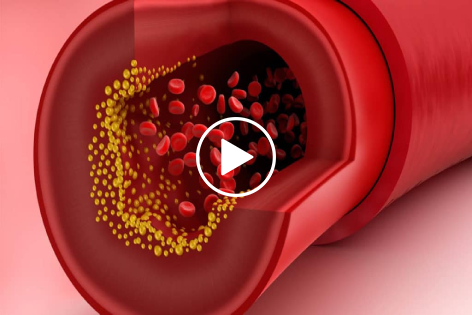
The Secret to Heart Health: Ideal LDL-Cholesterol Levels
Source: New England Journal of Medicine (2004); Cleveland Clinic (2019)
Lifestyle Medicine Update (June 22, 2021)
Introduction:
Maintaining heart health is a top priority, and recent studies have reaffirmed the significance of keeping LDL-cholesterol levels in the ideal range to prevent heart disease. We often hear about the importance of healthy cholesterol levels, but what exactly do these levels entail, and why are they crucial? Let’s delve into the latest research findings and discover what you can do to safeguard your heart.
Understanding the Importance of Cholesterol Checks
The Cleveland Clinic recommends that everyone aged 20 and older should undergo cholesterol checks at least every five years. These assessments encompass a comprehensive lipoprotein profile, which measures various components including total cholesterol, LDL cholesterol (commonly referred to as the “bad” cholesterol), high-density lipoprotein (HDL, the “good” cholesterol that aids in heart disease prevention), and triglycerides—a type of fat found in the bloodstream. It’s important to note that these tests should be conducted after fasting for a minimum of 12 hours.
Decoding LDL-Cholesterol and Its Connection to Heart Disease
LDL cholesterol takes center stage in heart health discussions due to its significant role in heart disease development. Elevated LDL cholesterol levels contribute to the accumulation of fatty deposits within the arteries, resulting in the narrowing or blockage of blood vessels, thereby reducing the flow of blood and oxygen to the heart. This process can lead to chest pain, heart attacks, and associated complications like stroke, kidney failure, and impaired circulation.
Reevaluating Ideal LDL-Cholesterol Levels
In patients at a high risk of heart disease, the target LDL-cholesterol level has been revised downwards to 60 mg/dL or less (1.5 mmol/L), compared to the earlier recommendation of 70 mg/dL (1.8 mmol/L). Surprisingly, the medical community still considers an acceptable LDL-cholesterol level to be any value below 100 mg/dL (2.6 mmol/L), irrespective of additional risk factors or prior heart attack or stroke history. This recommendation may appear perplexing, given the persistent prominence of cardiovascular disease as a leading cause of death.
Aim for Optimal Heart Health
In pursuit of heart health, striving to attain an LDL cholesterol level of 60 mg/dL (1.5 mmol/L) or lower should be a primary objective for every adult. Achieving and sustaining this level represents a critical step in preventing arterial blockages in the heart and other parts of the body, effectively thwarting plaque buildup within artery walls.
It’s important to recognize that while elevated LDL cholesterol is a key risk factor for heart disease and stroke, it’s not the sole determinant. Lifestyle choices, including dietary habits, regular exercise, and avoiding tobacco, play pivotal roles in overall cardiovascular health.
Take Charge of Your Heart Health
To safeguard your heart, it’s imperative to be informed about your LDL-cholesterol level. If your level surpasses 60 mg/dL (1.5 mmol/L), consider adopting a more proactive approach to your lifestyle aimed at lowering your LDL cholesterol. This involves reducing or eliminating consumption of high-fat animal products such as beef, pork, and lamb, as well as dairy items with more than 1% milkfat. Additionally, steer clear of saturated fat-rich foods like cheese, butter, cream, and deep-fried or trans-fat-laden items.
Conversely, incorporate foods rich in soluble fiber into your diet, such as beans, peas, oats, flaxseeds, and fiber-rich fruits like apples, pears, and plums—these can contribute to LDL-cholesterol reduction.
Should dietary adjustments fall short of achieving your ideal LDL-cholesterol range, consult your healthcare provider to explore potential interventions like statin drugs or Red Yeast Rice supplements. It’s essential to maintain close medical supervision for any potential side effects, including liver complications, diabetes risk, and memory-related concerns.
In your pursuit of heart health, maintain an active lifestyle, as physical activity complements dietary efforts and aids in keeping LDL cholesterol within the ideal range.
References:
- [Cleveland Clinic – Cholesterol Guidelines & Heart Health](https://my.clevelandclinic.org/health/articles/16866-cholesterol-guidelines–heart-health)
- [The New England Journal of Medicine – Cholesterol Lowering with Statin Drugs, NEJM, 2005](https://www.nejm.org/doi/full/10.1056/NEJMoa040583)
Dr. Meschino

Dr. James Meschino
ABOUT THE AUTHOR
Dr. James Meschino, DC, MS, ROHP, is an educator, author, and researcher having lectured to thousands of healthcare professionals across North America. He holds a Master’s Degree in Science with specialties in human nutrition and biology and is recognized as an expert in the field of nutrition, anti-aging, fitness, and wellness as well as the author of numerous books.


